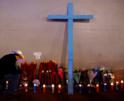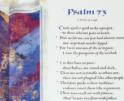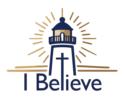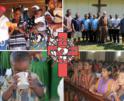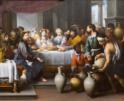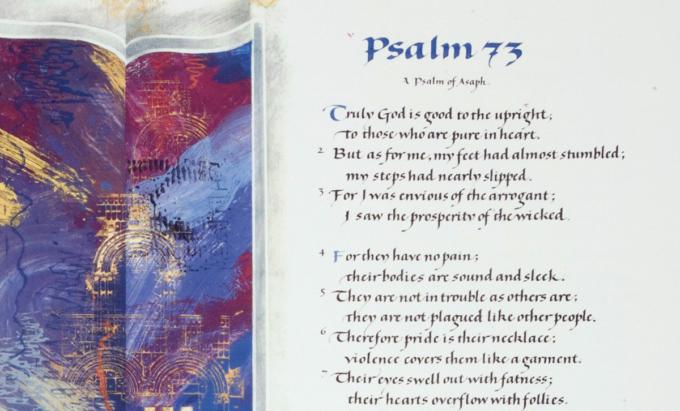
Faith
As with all the texts of Sacred Scripture, we confess that it is God speaking to us in human words. Perhaps in no book of the Bible is this so obvious as in Psalms.
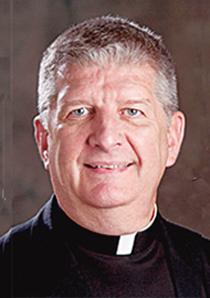
O'Grady
Dubbed the prayerbook of the church, the Book of Psalms was first the prayerbook of Israel and the only prayerbook of Jesus. The Holy Year booklet on this topic was written by Gianfranco Cardinal Ravasi. He joins a long line of those who have found, both for themselves and others, the richness of Israel's prayerbook.
A search on Amazon would yield multiple results, from personal reflections to scholarly tomes, from more than 2,000 years of authors.
The Book of Psalms is, if I recall, the third longest of the Old Testament books; Genesis and Jeremiah are longer. And if you count each Psalm as a chapter, this book has the most chapters, with 150. The longest is Psalm 119(118), the shortest is Psalm 117(116), and probably the best known is Psalm 23(22). There are two numbers because different versions or translations of the Bible number the Psalms differently.
Reading through the entire Book of Psalms would be a wonderful prayer. If you read and prayed a chapter a day, that would be about five months! It would be a wonderful way to learn how to pray or to expand your desire to pray. You'd also be surprised at some of the things that are prayed for in the Psalms. And you'd realize that since prayer is fundamentally a conversation (that means not only talking but also listening) with God, you can say anything to God.
As with all the texts of Sacred Scripture, we confess that it is God speaking to us in human words. Perhaps in no book of the Bible is this so obvious as in Psalms. God inspired the authors of these prayers to speak these words to God. In them, we hear a psalmist pour out grief, celebrate national or personal victory, accomplish great deeds, or bemoan simple or drastic failure.
There is much thanksgiving in the Psalms, and not all of it is what you might think is appropriate for thanking God.
Many of the Psalms use the word praise, not only for a psalm that is obviously praise of God but also connected to many of the other multiple human emotions, fears, successes, regrets, and so on. God is praised for those.
The very first of the Psalms, the cardinal notes, is a literal introduction to the rest of the book. Lost in translation is that the very first word in the Hebrew of this Psalm begins with the very first letter of the Hebrew alphabet, all the other letters begin a sentence or a phrase, and the very last word begins with the last letter of the same alphabet. And within the Psalm are hints of what's coming in the rest of the book.
About a third of the way through the book is the great penitential Psalm 51(50), where the psalmist admits total reliance on God's mercy. It is not only a confession of sin by the psalmist but an even greater confession of the mercy of God in the face of sin, even what we might think ourselves the greatest or unforgivable sinners.
Psalm 84(83) fits nicely with this Holy Year, as it is a song of pilgrims. Israel, it seems, was always on the move, sometimes at the summons of God, and other times, at the unwelcome captivity of her enemies. This Psalm echoes Israel's constant hope to reach the promised land, the temporary one here and the eternal one prepared for her by God.
One of the psalmists gives voice to the voiceless, as it were, in Psalm 104(103). In this Psalm, all non-human creation is given human voice to praise God. It is almost a summons of the psalmist to everything else to join in the praise of its creator.
If you want to memorize a psalm, it's clearly Psalm 117(116): "Praise the Lord all you nations, Glorify him all you peoples, for steadfast is his kindness towards us, and the fidelity of the Lord endures forever." Then, you can truthfully state that you have memorized a chapter of the Bible!
To see how important the law of Israel, which is its covenant with God, is for the People of Israel, look at Psalm 119(118). This Psalm is impressive not simply because of its length but because of the mastery of its human author. There are 22 stanzas, each, in sequence, begins with a letter of the Hebrew alphabet, one following the other; we'd say A to Z. Astonishingly, within each stanza, each word in the stanza also follows that "A to Z" pattern. And each stanza contains one of the eight synonyms the People of Israel used for "the law."
We, Pilgrims of Hope in this Holy Year, have a sure and common prayerbook in the Book of Psalms.
Recent articles in the Faith & Family section
-
Holding onto hopeJaymie Stuart Wolfe
-
Praying with the PsalmsFather Robert M. O'Grady
-
AgnesArchbishop Richard G. Henning
-
The Pontifical Mission Societies -- The Mainstay of MissionariesMaureen Crowley Heil
-
In the weddingScott Hahn

